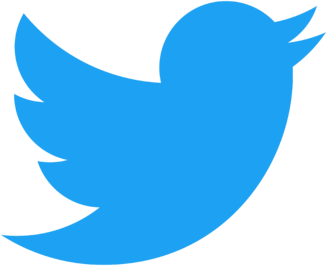Twitter: Difference between revisions
Jump to navigation
Jump to search
RedParabola (talk | contribs) (Started page) |
RedParabola (talk | contribs) mNo edit summary |
||
| Line 5: | Line 5: | ||
== Content == | == Content == | ||
{{Expand section|date=April 2024}} | {{Expand section|date=April 2024}} | ||
Content on Twitter, like other corporate social media, generates an environment which | Content on Twitter, like other corporate social media, generates an environment which creates abdication among users. Twitter also creates a stressful setting which splits users into "in-groups" and "out-groups" based on their network of followers.<ref>Judson Brewer (December 13, 2016). [https://www.psychologytoday.com/us/blog/the-craving-mind/201612/tweet-or-troll-why-twitter-is-amazingly-addictive ''"Tweet or Troll? Why Twitter Is Amazingly Addictive"'']. ''Psychology Today''. Retrieved April 28, 2024.</ref> | ||
== See also == | == See also == | ||
Revision as of 02:26, 29 April 2024
This article or section is being created, or is in the process of extensive expansion or major restructuring. You are welcome to assist in its construction by editing it as well. This template was placed by RedParabola (talk · contribs). If this page has not been edited in several days, please remove this template. If you are the editor who added this template and you are actively editing, please be sure to replace this template with {{in use}} during the active editing session. Click on the link for template parameters to use.
This article was last edited by RedParabola (talk | contribs) 16 days ago. (Update timer) |
Twitter is a popular corporate social media platform. It is premised around short instances of user-created content known as tweets,[note 1] and is distinguished from other social networking sites for its emphasis on content delivered in a microblogging format. Since 2022, Twitter, later renamed to X, was taken over by billionaire Elon Musk. The site began to decline as a whole and see a massive increase in right-wing extremist activity and content.[1]
Content
This section needs expansion. You can help by adding to it. (April 2024) |
Content on Twitter, like other corporate social media, generates an environment which creates abdication among users. Twitter also creates a stressful setting which splits users into "in-groups" and "out-groups" based on their network of followers.[2]
See also
External links
- 'We Make Mistakes': Twitter's Embrace of the Extreme Far Right on the Southern Poverty Law Center website
References
- ↑ Kate Lyons (April 27, 2024). "The demise of Twitter: how a ‘utopian vision’ for social media became a ‘toxic mess’". The Guardian. Retrieved April 28, 2024.
- ↑ Judson Brewer (December 13, 2016). "Tweet or Troll? Why Twitter Is Amazingly Addictive". Psychology Today. Retrieved April 28, 2024.
Notes
- ↑ Officially called "posts" since the site's rebranding.
